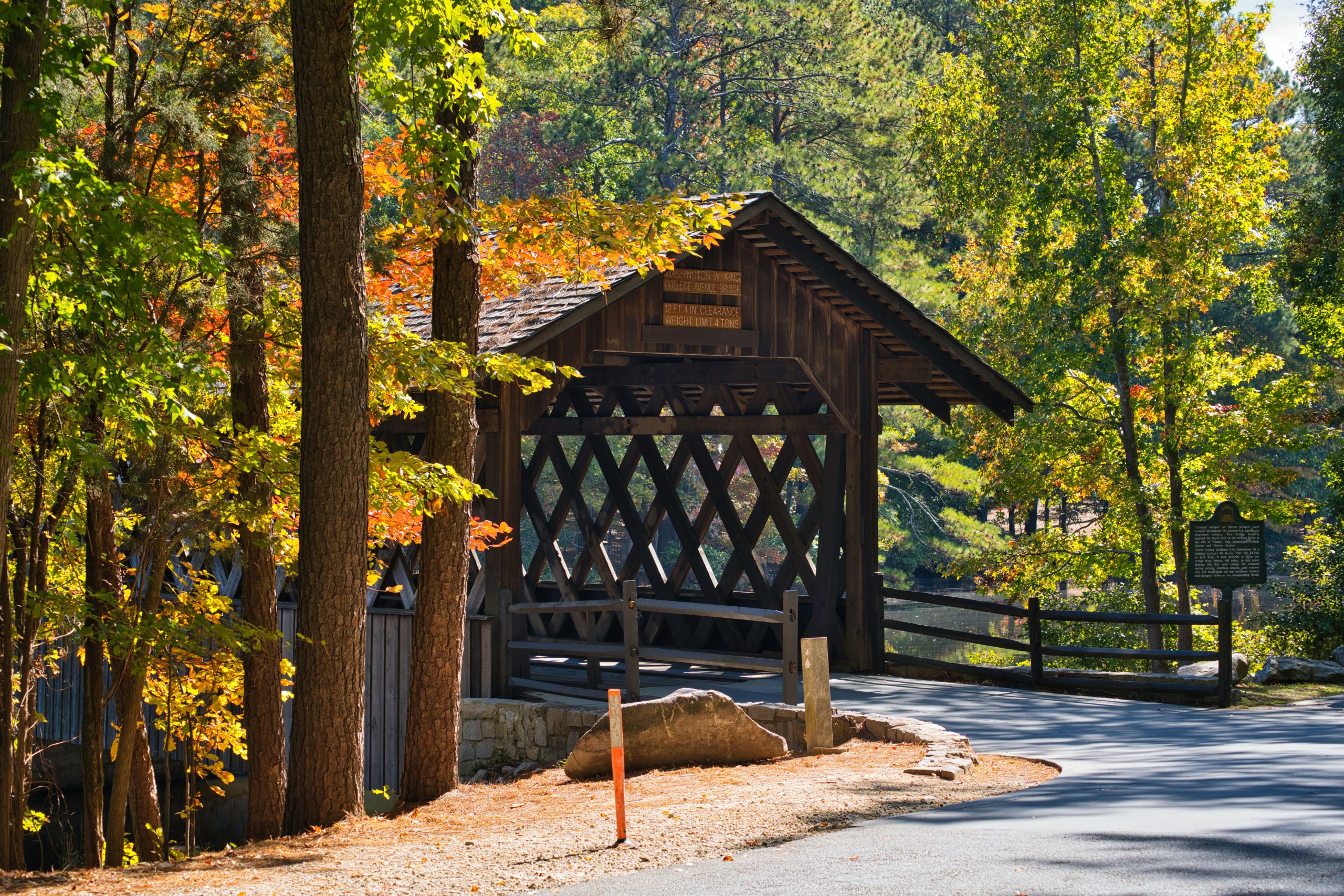Off grid living in Georgia presents a unique blend of challenges and rewards. This guide delves into the practicalities and legalities of embracing a self-sufficient lifestyle in the Peach State, from navigating land acquisition and permitting processes to designing sustainable energy and water systems. We’ll explore the intricacies of building an off-grid home, cultivating food, and fostering community in a remote setting, providing a realistic overview of what it takes to thrive off the grid in Georgia.
From the legal hurdles of obtaining permits and understanding zoning regulations to the practical considerations of renewable energy sources and water management, this exploration offers a detailed look at the multifaceted nature of off-grid living in Georgia. We examine various approaches to self-sufficiency, including food production, waste management, and building techniques tailored to the state’s unique climate and environment.
The realities of community building and safety in remote areas are also addressed, painting a comprehensive picture of this increasingly popular lifestyle choice.
Land Acquisition and Property Considerations: Off Grid Living In Georgia
Securing suitable land is paramount for successful off-grid living in Georgia. The state’s diverse geography presents a range of options, but careful consideration of several key factors is crucial before making a purchase. Ignoring these factors can lead to significant challenges and unexpected costs down the line.
Factors Influencing Land Selection
Choosing the right land involves assessing soil type, topography, access to resources, and legal considerations. Soil composition directly impacts the feasibility of septic systems and water well drilling. Clay soils, for example, can present difficulties for both. Topography affects building site selection, drainage, and potential solar energy collection. Steep slopes increase construction costs and complexity, while flat land might experience drainage issues.
Access to water sources, whether a well or a spring, is essential, and legal access to the property and any easements should be verified. Furthermore, zoning regulations and potential environmental restrictions must be investigated.
Finding Suitable Land for Sale
Finding suitable land in rural Georgia often involves utilizing online real estate platforms, networking with local realtors specializing in rural properties, and directly contacting landowners. Driving through potential areas is highly recommended to get a feel for the land’s accessibility, neighboring properties, and overall environment. s such as “off-grid,” “rural,” “acreage,” and specific county names should be used during online searches.
Notice best off grid living uk for recommendations and other broad suggestions.
Networking with local communities and attending county auctions can also reveal hidden opportunities. Remember to thoroughly investigate property boundaries and access rights.
Costs Associated with Land Acquisition and Preparation
The cost of land in rural Georgia varies greatly depending on location, size, and features. Expect to pay anywhere from a few thousand dollars per acre in less desirable areas to tens of thousands for prime land with desirable features. Preparation costs include surveying, soil testing, permitting fees, clearing land of vegetation, and potentially drilling a well and installing a septic system.
These costs can easily add tens of thousands of dollars to the overall project expense, depending on the chosen location and the complexity of the preparations. For instance, clearing heavily wooded land is significantly more expensive than preparing a relatively clear parcel. Furthermore, unexpected issues like rock formations or contaminated soil can significantly inflate costs.
Comparison of Land Types for Off-Grid Living
| Land Type | Pros | Cons | Suitability for Off-Grid |
|---|---|---|---|
| Wooded Land | Privacy, natural resources (timber), potential for wildlife viewing. | Higher clearing costs, potential for difficult terrain, possible challenges with access. | Moderate, depending on terrain and access. |
| Open Pasture Land | Easier to build on, good solar exposure, often less expensive. | Less privacy, potential for wind exposure, may require more water management. | High, if water sources are available. |
| Land with a Stream/Spring | Reliable water source, potential for irrigation, aesthetically pleasing. | Potential for flooding, may require specialized septic system design, environmental regulations. | High, but requires careful planning and compliance with regulations. |
| Rolling Hills | Scenic views, potential for diverse microclimates, good drainage. | Difficult terrain for building, increased construction costs, access challenges. | Moderate to Low, depending on the slope and accessibility. |
Food Production and Self-Sufficiency

Achieving food self-sufficiency on an off-grid property in Georgia requires careful planning and a multifaceted approach, leveraging the state’s diverse climate and growing seasons. Success hinges on a combination of efficient gardening techniques, strategic livestock choices, and effective preservation methods to ensure year-round food security.
Georgia Climate-Appropriate Food Production Strategies
Georgia’s climate, characterized by warm, humid summers and mild winters, presents both opportunities and challenges for food production. A diversified approach is crucial, incorporating methods suitable for different seasons and soil types. This includes establishing raised garden beds for improved drainage and soil management, utilizing vertical gardening techniques to maximize space, and potentially integrating hydroponics or aquaponics for year-round vegetable production.
The use of row covers and other protective measures can extend the growing season and protect crops from frost. Furthermore, integrating permaculture principles, such as companion planting and crop rotation, can enhance soil health and pest control.
Food Preservation Techniques for Off-Grid Living
Preserving surplus produce is vital for year-round food security in an off-grid setting. Several methods are well-suited to Georgia’s climate. Canning and freezing are effective for preserving fruits, vegetables, and meats. Dehydration is another valuable technique for preserving herbs, fruits, and vegetables, extending their shelf life considerably. Fermentation, such as pickling or making sauerkraut, is a traditional method that preserves food and adds unique flavors.
Proper sanitation and adherence to established food safety guidelines are crucial for preventing spoilage and ensuring food safety during the preservation process. For example, ensuring proper sterilization of jars before canning is essential to prevent botulism.
Pest Control and Disease Prevention in Off-Grid Food Production, Off grid living in georgia
Pest and disease management is a crucial aspect of successful off-grid food production. Integrated pest management (IPM) strategies, which prioritize preventative measures and minimize the use of chemical pesticides, are highly recommended. This includes crop rotation, companion planting (planting certain plants together to repel pests), and the use of natural pest control methods such as beneficial insects or introducing chickens to control insect populations.
Regular monitoring of crops for signs of disease or pest infestation is essential for early intervention. Maintaining soil health through composting and other organic methods strengthens plant resilience to diseases. For example, using neem oil as a natural insecticide can be effective against various pests without harming beneficial insects.
Suitable Crops and Livestock for Off-Grid Georgia
Choosing appropriate crops and livestock is key to maximizing food production in Georgia’s environment. The following list provides examples of species well-suited to the region:
- Crops: Sweet potatoes, collard greens, beans (various types), tomatoes, peppers, squash (summer and winter), corn, okra, pecans, blueberries, muscadine grapes.
- Livestock: Chickens (for eggs and meat), goats (for meat and milk), rabbits (for meat), pigs (if space and regulations allow).
The selection should consider factors like available land, personal preferences, and market opportunities for potential surplus. For instance, muscadine grapes thrive in Georgia’s climate and can be used for fresh consumption, juice, or jelly. Chickens are relatively low-maintenance and provide both eggs and meat, making them a popular choice for off-grid homesteads.
Community and Social Aspects of Off-Grid Living in Georgia

The decision to embrace off-grid living in Georgia presents a unique blend of challenges and rewards, significantly shaped by the social dynamics inherent in remote living. While offering unparalleled independence and connection with nature, it also requires careful consideration of community integration, resource management, and personal safety. Successful off-grid existence in Georgia often hinges on the ability to foster strong community bonds and implement effective strategies for mitigating the inherent risks of isolation.
Challenges and Benefits of Remote Living in Georgia
Life in a remote Georgian setting, removed from readily accessible services, presents both obstacles and advantages. Challenges include limited access to healthcare, education, and reliable internet connectivity. Emergency response times may be significantly longer, requiring greater self-reliance. Conversely, the benefits include a stronger sense of community fostered by shared experiences and mutual support. Residents often enjoy increased privacy, a slower pace of life, and a closer connection to the natural environment.
The trade-off between convenience and autonomy is central to the off-grid experience in Georgia.
Examples of Successful Off-Grid Communities and Collaborative Strategies
While precise data on the number and characteristics of established off-grid communities in Georgia is limited due to their often-unofficial nature, anecdotal evidence suggests several successful models. These communities frequently rely on shared skills and resources. For example, some communities may organize collective maintenance of shared infrastructure, such as water sources or roads. Others might implement bartering systems for goods and services, reducing reliance on external markets.
Skill-sharing workshops, focused on areas like carpentry, permaculture, and basic mechanics, are also common. The success of these communities is often directly correlated to the strength of their social fabric and commitment to mutual support.
Safety Concerns and Mitigation Strategies for Off-Grid Living in Georgia
Safety remains a paramount concern for off-grid living in Georgia. The remoteness of these locations can increase vulnerability to wildlife encounters, natural disasters, and potential security breaches. Effective mitigation strategies include proper wildlife awareness and preparedness, robust emergency plans encompassing communication protocols and first-aid training, and the implementation of security measures such as perimeter fencing or alarm systems.
Strong community ties can play a crucial role in enhancing safety, allowing for rapid response to emergencies and mutual assistance. Regular communication with external contacts is also vital for maintaining awareness of potential threats and ensuring access to timely support.
Typical Social Dynamics within Off-Grid Communities in Georgia
Social dynamics within Georgia’s off-grid communities tend to be characterized by strong interpersonal relationships, built on shared values and mutual reliance. A sense of collective responsibility prevails, encouraging cooperation and collaboration in various aspects of daily life. While individual privacy is valued, a strong sense of community often dictates a degree of collective decision-making regarding shared resources and infrastructure.
Conflict resolution typically relies on informal methods, prioritizing consensus and amicable solutions. However, as with any community, challenges may arise due to differing lifestyles, personalities, or expectations, requiring effective communication and conflict-resolution strategies.
Embarking on off-grid living in Georgia requires careful planning, resourcefulness, and a commitment to self-reliance. While the path may be challenging, the rewards of independence, connection with nature, and a sustainable lifestyle are significant. This guide provides a framework for navigating the complexities of this endeavor, empowering individuals to make informed decisions and build a thriving off-grid existence in the diverse landscapes of Georgia.


